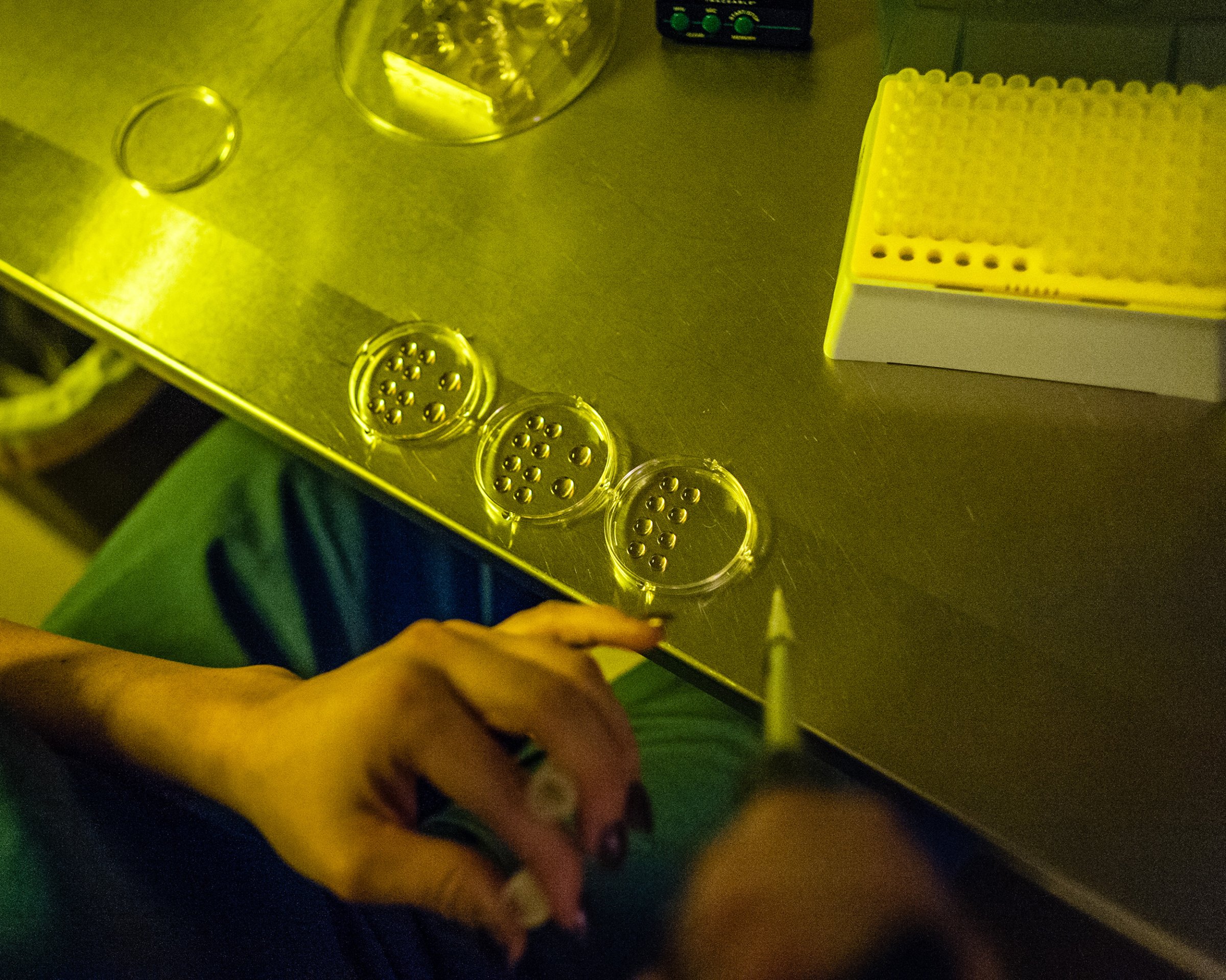
Some things in life can’t be controlled. I know that. I’ve accepted that. But when it comes to my health, I’ve always tried to ground myself in the things I can control…like the decision to freeze my eggs at 30.
My life has been a constant game of offense. At 22, I found out I carried a BRCA1 gene mutation. I was healthy and without cancer, but the mutation meant I carried a breast cancer risk with odds so extreme that I decided to have a preventive mastectomy. The next year, I founded Bright Pink, a national nonprofit that has since empowered millions of young women to be proactive with their breast and ovarian health. At the time, everything felt right. I had the job, the condo and the perfect boyfriend.
As I entered my late 20s—sans the boyfriend—I started feeling like I was falling behind and had this moment of extreme panic. Maybe it was triggered by the growing stack of wedding invitations piling up on my counter or maybe it was the reality of another failed relationship, but it felt like everyone else’s world was moving forward while mine was standing still.
Suddenly, every date felt like a casting call to find Mr. Right. And I remember doing the math each time. It went something like, “O.K., if we get married next year and then I get pregnant, I can still be in my early 30s when I have my first kid.” Did I mention I was planning to have my ovaries removed in my mid-30s? Ovarian cancer is known to strike younger and more aggressively in women who carry the BRCA gene mutation, and since there’s no good screening test for the deadly disease, research points to one solution: Ovary removal at 35, 40 at the latest.
As new relationships took their course, I would always try to convince myself that I had found “the one.” But in my heart, I knew I was trying to sell myself on Mr. Right Enough just because I felt pressure to move forward with my life. I was torn; I didn’t want my strong desire for a family to be the reason I settled, but the situation felt out of my control. I couldn’t wait around for the perfect guy, and I also felt uncomfortable putting so much of my future in the hands of the unknown.
So my single 29-year-old self decided to freeze my eggs. The decision wasn’t easy. I was overcome with the feeling that maybe this meant I had failed. Had I spent too much time focused on my career and not enough time focused on my personal life? But like so many things in life, it’s all about perspective. A switch flipped, and I realized that this was one of those moments where I could play offense and do something positive for my future. This was my chance to safeguard my assets so I could have children when the time was right. And in the meantime, I could lift the constant cloud of anxiety I was living under.
Learn more about egg freezing:
I saved up the money (freezing your eggs can cost anywhere from $7,000 to $15,000 without insurance) and remember walking into the fertility clinic with my mom, worried I would be judged by a room filled with women who had come with their supportive significant others. Never have I been so wrong. There were women with friends and women with their moms—just like me. There isn’t a one-size-fits all approach to preserving your fertility.
Ironically enough, my now-husband and I had our first date two weeks after my eggs were retrieved. At the time, he was considering a vasectomy. But three years later, we’re married with three children from his previous marriage—and we all want to grow our family. Life is funny like that.
I don’t regret my decision to freeze my eggs for one second. Sometimes, you have to invest in things you don’t necessarily need at that moment so that, in case you do end up needing them, you’ll have a safety net. (It is worth noting that egg freezing is not a certain investment. According to numbers compiled for TIME by the Society for Assisted Reproductive Technology, the primary medical organization of assisted reproduction, only a portion of women who thaw their eggs end up carrying a child to term.)
I lead the charge at an organization where we encourage women to take a proactive approach to their breast and ovarian health every day in order to lay the groundwork for a healthy future. My decision to freeze my eggs was just that—an investment in my future. The sooner we have this conversation, the sooner we can start to fight the stigma associated with it—and end the notion that it’s somehow a sign of failure. Sometimes, it just takes a little longer for the stars to align. But as someone who’s been there, I can tell you that there’s nothing more freeing than knowing you have options.
Lindsay Avner, 33, is the Founder & CEO of Bright Pink, a breast and ovarian health organization reaching millions of young women each year.
More Must-Reads from TIME
- Donald Trump Is TIME's 2024 Person of the Year
- Why We Chose Trump as Person of the Year
- Is Intermittent Fasting Good or Bad for You?
- The 100 Must-Read Books of 2024
- The 20 Best Christmas TV Episodes
- Column: If Optimism Feels Ridiculous Now, Try Hope
- The Future of Climate Action Is Trade Policy
- Merle Bombardieri Is Helping People Make the Baby Decision
Contact us at letters@time.com